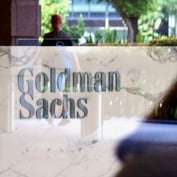Financial advisors appear to have lost faith in mutual funds asset managers named in recent investigations, a new survey by Cerulli Associates Inc., Boston, finds. And they now appear to be paying close attention to managers ethical standards.
Among advisors polled for Cerullis “Advisor Satisfaction Metrics 2004″ study, 98% said an unblemished ethical reputation was extremely or somewhat important in choosing an asset manager.
Moreover, advisors have dropped tainted fund managers like so many hot potatoes, Cerulli found.
Such firms as Putnam Investments, AIM Investments and Massachusetts Financial Services Company have tumbled off the list of fund managers top-ranked by advisors. They were all the subject of mutual fund market-timing investigations last year by New York State Attorney General Eliot Spitzer or by the Securities and Exchange Commission.
In 2004, the top-ranked managers were American Funds, Franklin Templeton and Oppenheimer Funds, Cerulli found. All were unscathed by the scandals.
Cerulli believes, however, that high ethical standards may not really be as important to advisors as strong performance when selecting a fund.
Concern with ethical behavior was likely a reaction to the current market and regulatory environment, Cerulli says.
“Thats what they say because thats what they need to say” to reassure the investing public, says Kirby Horan, an analyst with Cerulli and author of the study.








 February 02, 2005 at 07:00 PM
February 02, 2005 at 07:00 PM










